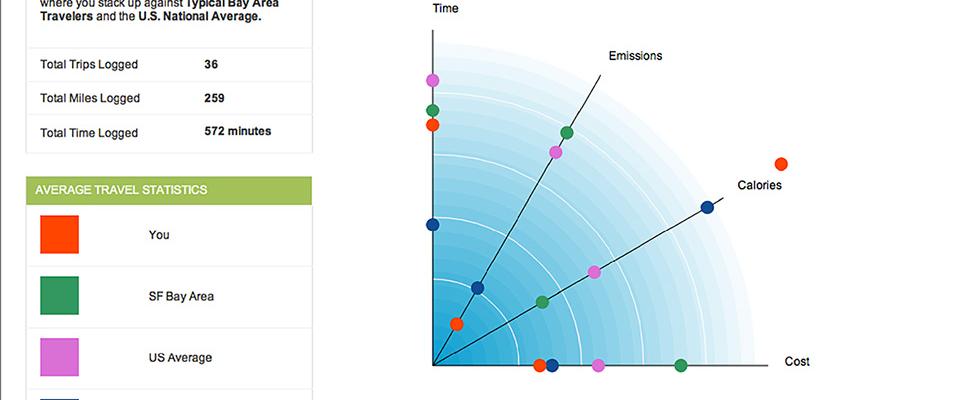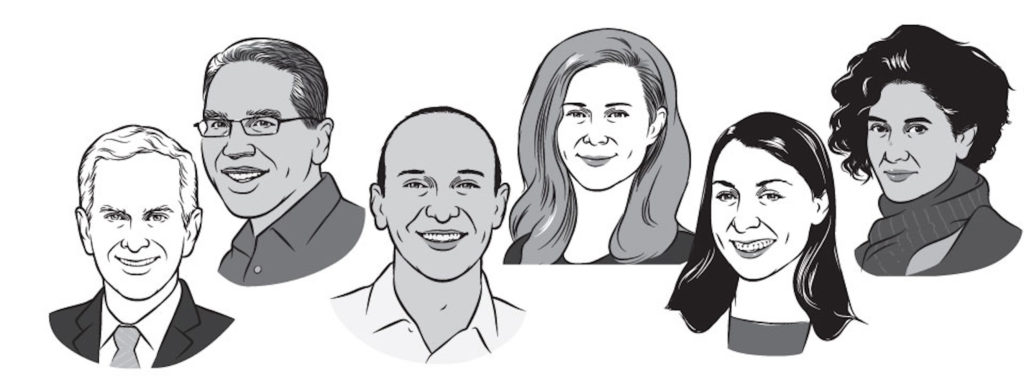A new app makes commuters more aware of their environmental impact.
If you knew how much C02 you emitted during your daily commute, would you change your travel habits to something more ecofriendly? Researchers are hoping that the answer is yes.
To find out, students and professors at Berkeley’s Department of Civil and Environmental Engineering developed the Quantified Traveler, a smartphone app that tracks users’ daily commute and gives them feedback on how “green” their travel choices are.
“We know that people can persuade people,” said Professor Raja Sengupta. “The interesting thing here is to try to understand if computational systems can persuade people.” According to Sengupta, this is one of the first studies to utilize computing technologies and ecofeedback to track and change commuter behavior.
For three weeks, the app tracked 135 participants in their travels. It recorded a cumulative total of 20,160 km, in five transportation types: walking, biking, driving, riding the train, and taking the bus. Any shift in riders’ attitude was assessed by comparing surveys taken by the participants before and after the three-week period. Questions addressed their awareness of environmental issues and their intentions to choose more earth-friendly ways to travel.
Users were able to log on to a website to view their data, including levels of C02 emission, travel time, money spent, and even calories burned. They could also compare their personalized statistics with those of the average American, the average Bay Area resident, and other participants in the study.
Doctoral candidate André Carrel, Ph.D. ’14, who coauthored the study, and the research team found that the app users reduced their driving and tended to walk and bike instead. This effect was strongest among those who identified as frequent drivers. But the researchers also saw a surprising result: Participants who were “greener” during the first week of the study became less green by the last week. Carrel speculates that this behavior change was due to peer influence.
“[These participants] may feel that they have been doing more than their fair share,” he said. “Seeing the averages may convey the message that they do not need to feel guilty for causing more emissions because their peers are the ones who should make a bigger effort.”
Carrel is preparing to expand the traveler app and his test sample to include San Francisco drivers this summer, to study how their experiences using public transit affect their attitudes toward prolonged green transportation.




















